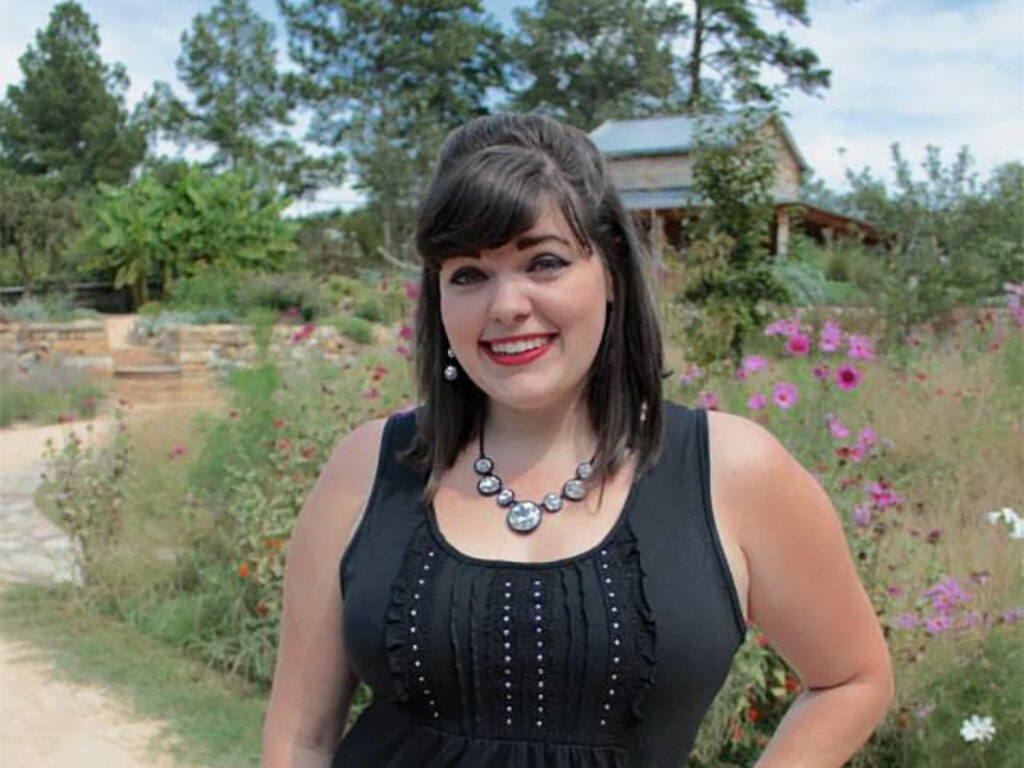Campbell Alumna Creates Safe Haven in Bull City

Lauren Dawood (’11, ’13) wants her clients to know that “therapists are only human too.” Hoping to bridge the gap between therapist and client, Dawood has created a place for people to come, talk about their struggles, and reach healing in a safe environment through Bull City Safe Space, a counseling agency located in downtown Durham, North Carolina.
Dawood, a 2011 Bachelor of Science in psychology graduate and a 2013 Master of Arts in mental health counseling graduate, founded Bull City Safe Space in February 2018 after spending four years working in a group practice. “I decided to take the jump into my own private practice,” she said. “It takes a lot of prep work: getting on insurance panels, getting your business license, finding office space, making a website” – to name just a few of the time consuming preparations that went into opening her own practice. However, she also says that the time commitment has been worth the effort: “I am able to decide the exact kind of client I want to work with, when I want to work, [and] how I want to work.”
Although she graduated from Campbell with a psychology degree, Dawood entered college uncertain of how to combine her creative spirit with her love of service. “I had a General Psychology class with Dr. Gary Taylor and that is where everything changed. I discovered I could still help others and be creative in my work, which satisfied both areas that I desired. Mental health counseling is such a necessary service,” she said. She has since dedicated her practice to helping young adults and adolescents to explore and understand their feelings in healthy ways.
Teenagers have a reputation for being melodramatic or full of exaggerations, Dawood realizes, and she says that her clients “come in expecting someone that won’t take them seriously, as teenagers are often viewed as ‘dramatic,’ [or] ‘misunderstood.’ It is an unexplainable feeling to know that a child or teen has been able to share something with me that I know they haven’t been able to discuss otherwise.” Dawood also provides counseling for people of all ages, genders, and sexual orientations, saying, “Being able to provide that safe and supportive space for someone is an incredible feeling – just knowing that I am able to establish a safe space and a trusting, healing relationship so they can verbalize and process difficult situations.”
That aspect of her job may be rewarding, but it is not without its share of emotional struggles. “Clients often share devastating information, events, and traumas,” Dawood explains. “There is a constant balancing act of keeping calm in the face of crisis, but also showing the appropriate amount of empathy so the client knows that you do understand their pain.” This “balancing act” has taken her time to navigate, and she continues to practice each day.
Dawood is quick to say that the counseling services portrayed in television and movies are inaccurate. “People do not lay on the couch and ask for you to analyze their dreams and such,” she said. “There can be a roller coaster of emotion as you try to guide the person through their experiences. The therapist is also not up on a pedestal as the ‘all knowing, wise person.’ I view it as a much more collaborative process. The client is the expert on their life and experiences; I am just there to guide, ask the needed questions and provide support.”
That provided support is why Dawood recommends therapy to anyone interested, not just those who are already struggling with a diagnosed mental health condition. She said, “Therapy offers the opportunity to explore your thoughts and feelings [and] experiences, without being judged in any way. It is a process of learning to better understand yourself, your coping skills, your thought processes, and the way that experiences shape who you are as a person. We all have a past, we all have experiences, we all have challenges, and we can all improve.”
That continuous self-improvement is what Dawood terms, “Dialectical Behavior Therapy.” She defines the theory as, “People are doing the best they can, and people need to do better, try harder, and be more motivated to change.” Dawood is a fan of this philosophy because “it shows that you can accept yourself as you are, doing the best that you can, and that there’s always room for improvement.”
Dawood is always interested in her own self-improvement and is currently exploring her creative side with hobbies including photography, painting, and gardening. She said, “Those are all wonderful ways to release my stress, enjoy myself, and see a lovely finished product, whether that is a freshly grown pepper or a new painting. My hobbies are activities that help me to recharge, refresh and fulfill myself, as being a therapist can leave one feeling drained after a long week of emotional sessions.” Dawood currently sees up to eight clients in a single day, so she understands that “finding time to self care and the things that refresh you is essential.”
For further information on Bull City Safe Space and related resources, visit www.bullcitysafespace.com.
Read more about alumni news and events at alumni.campbell.edu.
